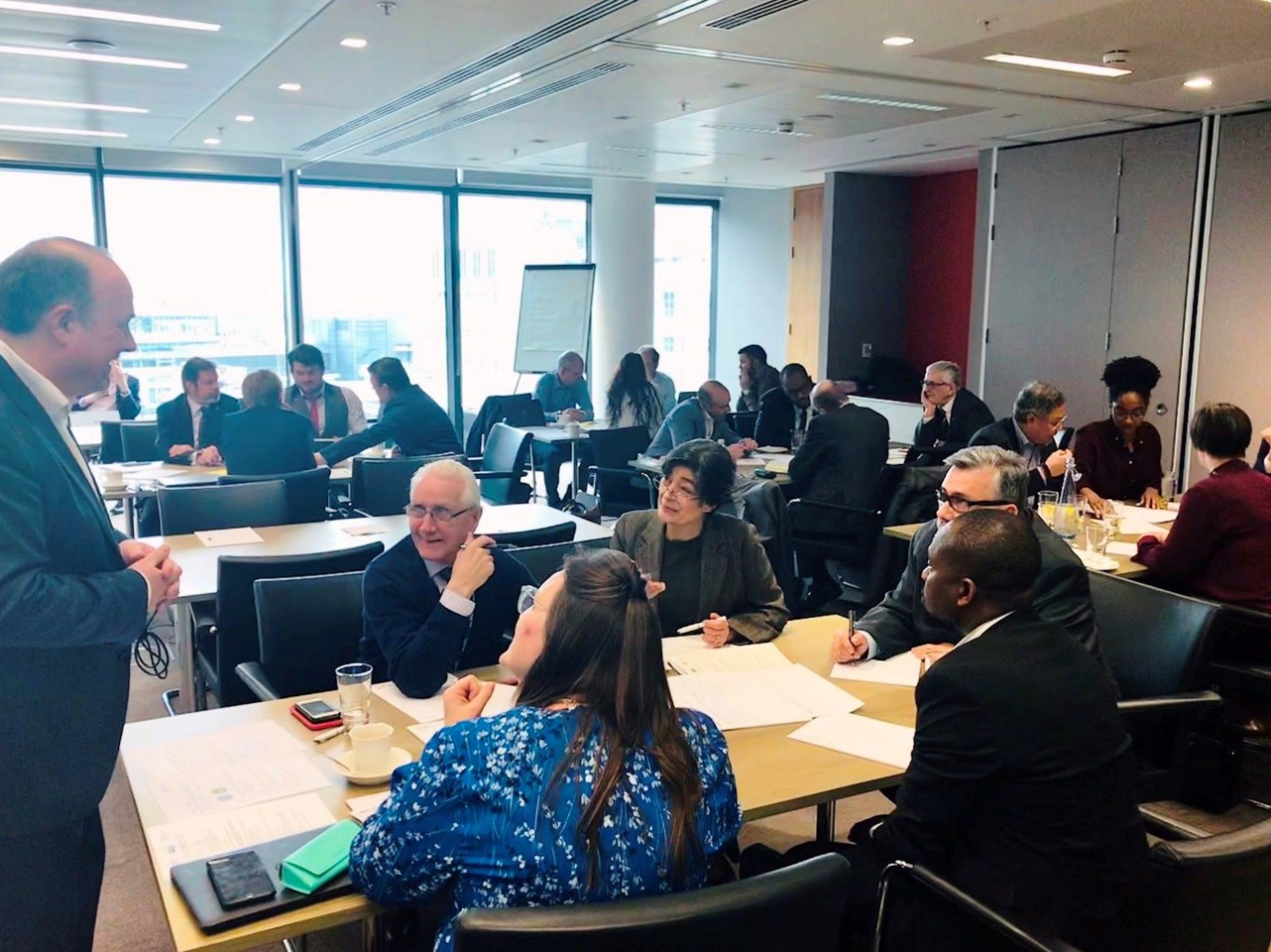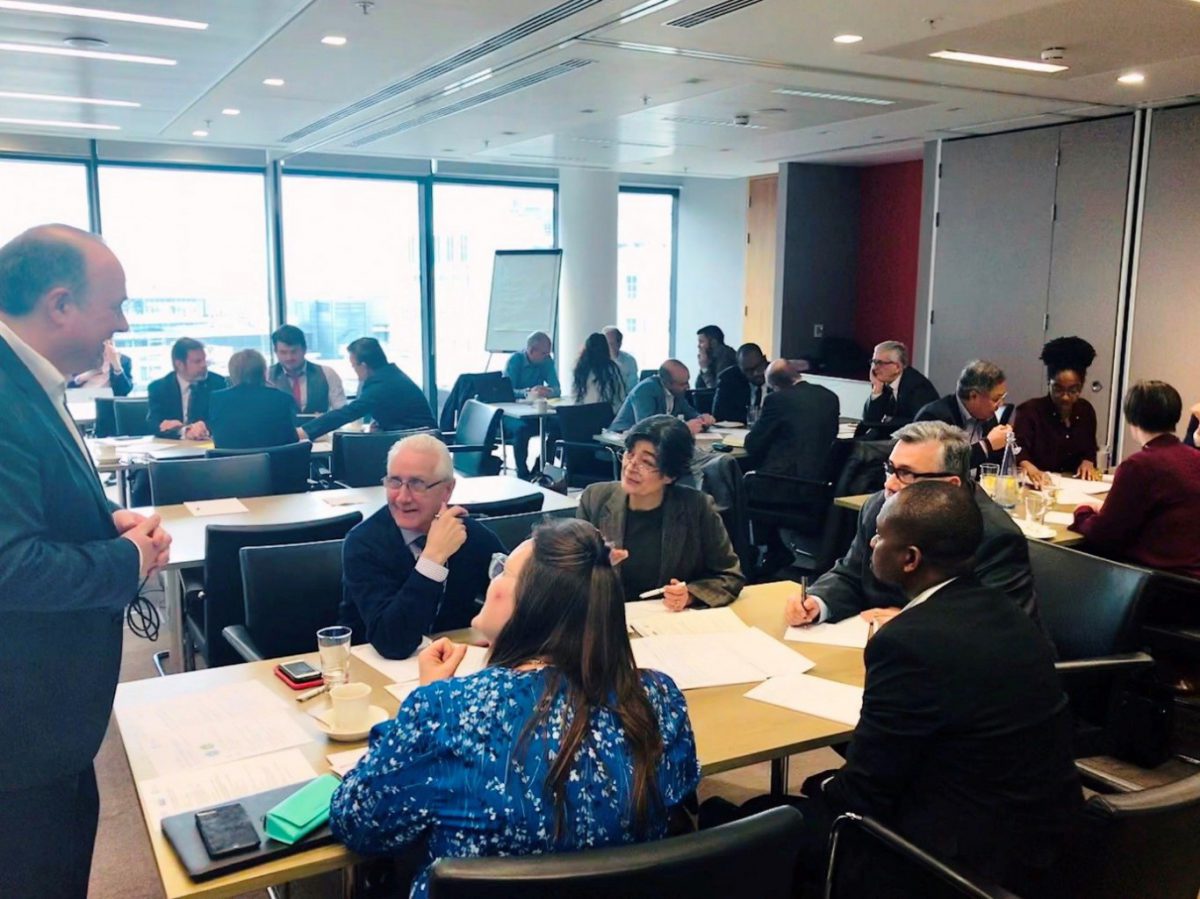As part of our engagement with the Construction Innovation Hub, a workshop was held in London on 18 February 2020. A diverse range of participants from industry, education and the public sector were asked the question, “what are your future skills needs for project and asset performance?”
Following an introduction by Alison Nicholl, Head of Constructing Excellence, the Hub’s, Skills and Training Lead, Dr Robert Illes set the scene by describing the well-known construction industry skills problems and focused down onto some of the work of the Hub and the acute need to work on construction skills in the areas of project and asset performance. We were also very lucky to have Marcus Bennett, CITB Future Skills Strategy, talk about current CITB work in the areas of skills for offsite and digital.
Participants were then split into themed tables of ‘quality’, ‘whole-life value’, ‘assurance and compliance’, and a wild card or ‘anything goes’ theme. Two activities followed in which the audience were asked to first examine, add to and prioritise a number of potential new training ideas, and then explore their top priorities in more detail and set out indicative learning objectives and other requirements for potential new training content.
In the context of the above themes, participants offered that it would be prudent to develop skills and training in the following:
- Terms and definitions: ensuring consistency across disciplines, client, suppliers and sub-contractors.
- Collaborative working practices: for leaders, operational management and technical disciplines.
- Quality and selection process: applying processes to the selection of products and services.
- Lean and value creation: developing and adopting a lean strategy and defining ‘high value’ from a client perspective.
Subsequent discussion revealed the following deeper concerns, which the Hub will also use to influence its development of some open-source training materials and other content:
- Skills for leadership: participants felt that this was their highest priority, before any discussion about the various disciplines. This includes equipping senior management and clients with tools and the mindsets to make the best possible decisions and embed all the ‘good stuff’ about outcomes, value and collaboration into projects.
- Defining ‘value’ consistently: aligning our meanings, aligning contractually. Do clients reward value creation? Although everyone has a deep sense of value, it is usually tacit and not consistently expressed. Does our ubiquitous talk about ‘assets’ prevent adoption of a more holistic concept of value?
- Outcome-based thinking: a need to really develop this as a tool and mindset, at all levels, for everyone. Using the ‘currency’ of outcomes. Unravelling and making clear our concepts and links between ‘business problem’, ‘outcomes’ and ‘value’.
- Culture of life-long learning: how do we enable continuous improvement, encourage ambition and promote an educational environment?
We hope to see you at similar workshops and round tables around the country, in order that we can further deepen our knowledge about the above, and about your future skills requirements for performance, develop some really robust content in this area, and influence the government agenda.
If you have an interest in the future skills needs of our sector please make sure you are represented. Our next workshop will be in Bristol on 12th March.



Comments are closed.